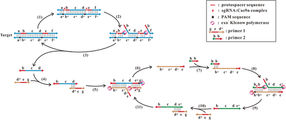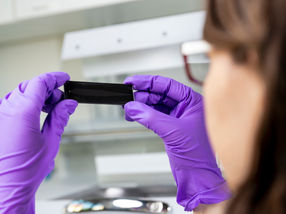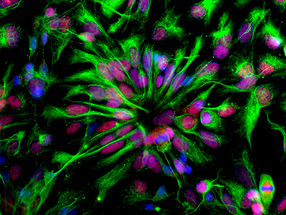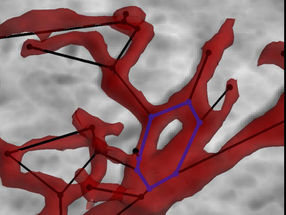MicroRNA in human saliva may help diagnose oral cancer
Researchers continue to add to the diagnostic alphabet of saliva by identifying the presence of at least 50 microRNAs that could aid in the detection of oral cancer, according to a report in Clinical Cancer Research.
"It is a Holy Grail of cancer detection to be able to measure the presence of a cancer without a biopsy, so it is very appealing to think that we could detect a cancer-specific marker in a patient's saliva," said Jennifer Grandis, M.D., professor of otolaryngology and pharmacology at the University of Pittsburgh School of Medicine and Cancer Institute and a senior editor of Clinical Cancer Research.
MicroRNAs are molecules produced in cells that have the ability to simultaneously control activity and assess the behavior of multiple genes. They are a thriving research topic right now, and researchers believe they could hold the key to early detection of cancer. The emergence of a microRNA profile in saliva represents a major step forward in the early detection of oral cancer.
"The oral cavity is a mirror to systemic health, and many diseases that develop in other parts of the body have an oral manifestation," said David T. Wong, D.M.D., D.M.Sc., Felix and Mildred Yip Endowed Professor at the University of California, Los Angeles School of Dentistry.
Wong and colleagues measured microRNA levels in the saliva of 50 patients with oral squamous cell carcinoma and 50 healthy control patients. They detected approximately 50 microRNAs. Two specific microRNAs, miR-125a and miR-200a, were present at significantly lower levels in patients with oral cancer than in the healthier controls. Wong said that the findings of this study would have to be confirmed by a larger and longer analysis.
Most read news
Topics
Organizations
Other news from the department science

Get the analytics and lab tech industry in your inbox
By submitting this form you agree that LUMITOS AG will send you the newsletter(s) selected above by email. Your data will not be passed on to third parties. Your data will be stored and processed in accordance with our data protection regulations. LUMITOS may contact you by email for the purpose of advertising or market and opinion surveys. You can revoke your consent at any time without giving reasons to LUMITOS AG, Ernst-Augustin-Str. 2, 12489 Berlin, Germany or by e-mail at revoke@lumitos.com with effect for the future. In addition, each email contains a link to unsubscribe from the corresponding newsletter.




















![[Fe]-hydrogenase catalysis visualized using para-hydrogen-enhanced nuclear magnetic resonance spectroscopy](https://img.chemie.de/Portal/News/675fd46b9b54f_sBuG8s4sS.png?tr=w-712,h-534,cm-extract,x-0,y-16:n-xl)




































